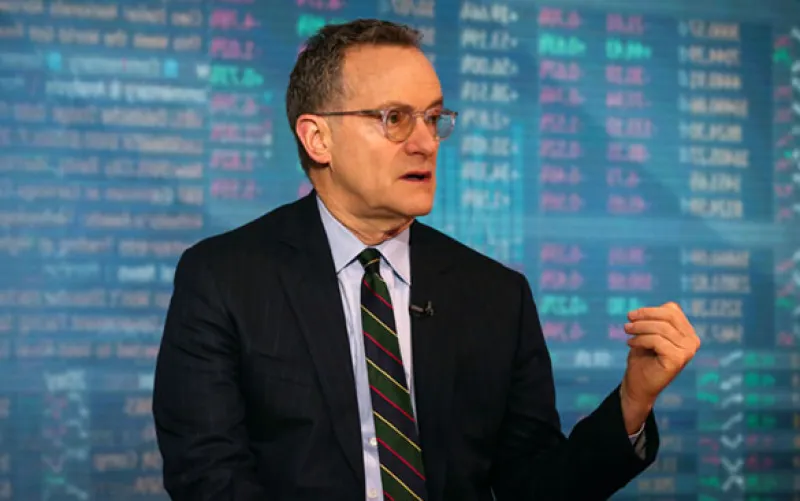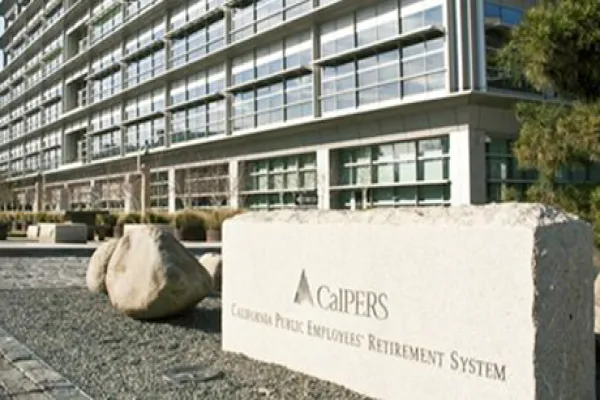Howard Marks has never had patience for short-term thinking. And the current market downturn hasn’t changed that.
In his most recent missive, Marks, co-chairman of Oaktree Capital Management, argues what he always argues: that allocators and managers looking for above-average results need to separate themselves from the pack by thinking unconventionally, ignoring the investment crowd’s tendency to think short-term, and focusing “on the things that really matter.”
Marks, who said he’s constantly bombarded with questions about the outlook for inflation, or how high the Federal Reserve will raise interest rates, or whether or not a recession is inevitable, argues that the short-term future is simply impossible to predict. “If we have an opinion about the short term,” he wrote, “we can’t (or shouldn’t) have much confidence in it.”
He added that even if investors and managers were somehow able to reach a meaningful conclusion about what was going to happen in the near future, the majority of allocators wouldn’t change their portfolio to reflect those opinions. Short-term thinking, Marks argues, is best left to traders.
Before starting Oaktree in 1995, Marks spent a decade at TCW Group as the chief investment officer of domestic fixed income and 16 years at what is now Citi as a portfolio manager in high-yield.
In his first job, at First National City Bank, Marks famously worked in the bond department during the early days of high-yield. He said that at the time, fiduciaries considered these securities to be uninvestable, but Marks was somehow managing to generate returns. To this day, he believes that this widely held opinion about the undesirability of these kinds of assets was the key to his success.
“I quickly recognized that my strong performance resulted in large part from precisely that fact: I was investing in securities that practically no one knew about, cared about, or deemed desirable,” he wrote.
Marks has held on to that philosophy. In the memo, Marks wrote that the best way to understand his point is to make it a mathematical process. First, all investors collectively will make a certain amount of money on an individual stock during a certain period in a specific market. This pool of money will be a result of how the profits of companies or assets grow or decline and how investors feel about the profits and therefore respond to asset prices.
On average, Marks wrote, investors will see average performance, and this explains the popularity of index funds. “If you’re happy doing average, you can simply invest in a broad swath of the assets in question, buying some of each [in] proportion to [their] representation in the relevant universe or index,” Marks wrote. “If you want to be above average, [however,] you have to depart from consensus behavior.”
For Marks, this means that investors with above-average aspirations need to take on more risk by overweighting certain securities, asset classes, or markets and underweighting others. Of course, this kind of investing comes with a fairly obvious caveat: For active investors placing bets on investments that have the potential to provide an above-average return, those bets also come with the risk of below-average returns. As Marks put it, “You can’t hope to earn above-average returns if you don’t place active bets, but if your active bets are wrong, your returns will be below average.”
In this most recent memo, Marks pulls from his previous memos, podcasts, and other successful investors — including David Swensen, the late chief investment officer of Yale University's endowment — as well as his own 2011 book, The Most Important Thing, a distillation of his most celebrated memos. Marks cited a chapter in the book about contrarianism, concluding that “if the extreme highs and lows are excessive and the result of the concerted, mistaken actions of most investors, [it’s] essential to leave the crowd and be a contrarian.”







